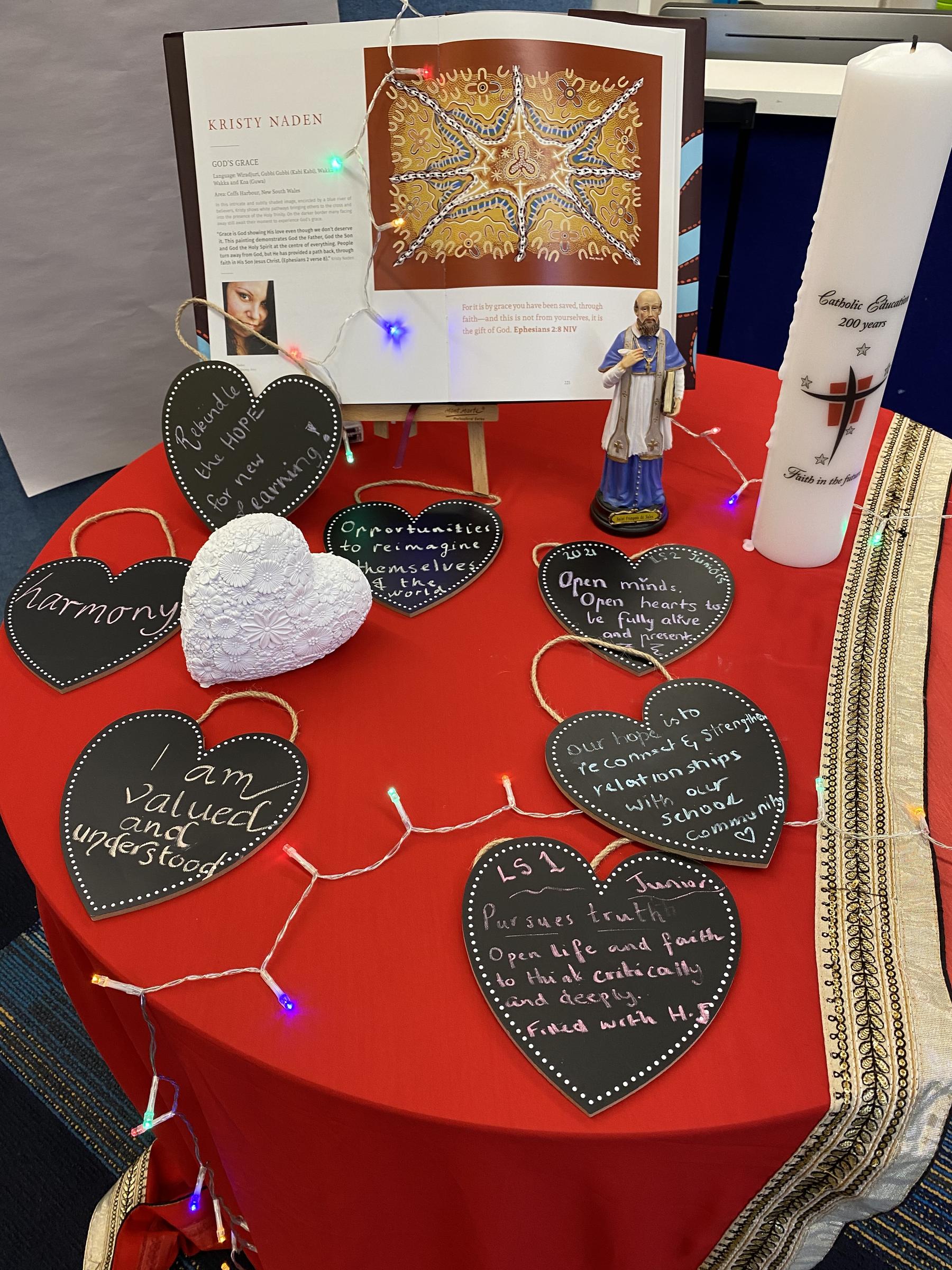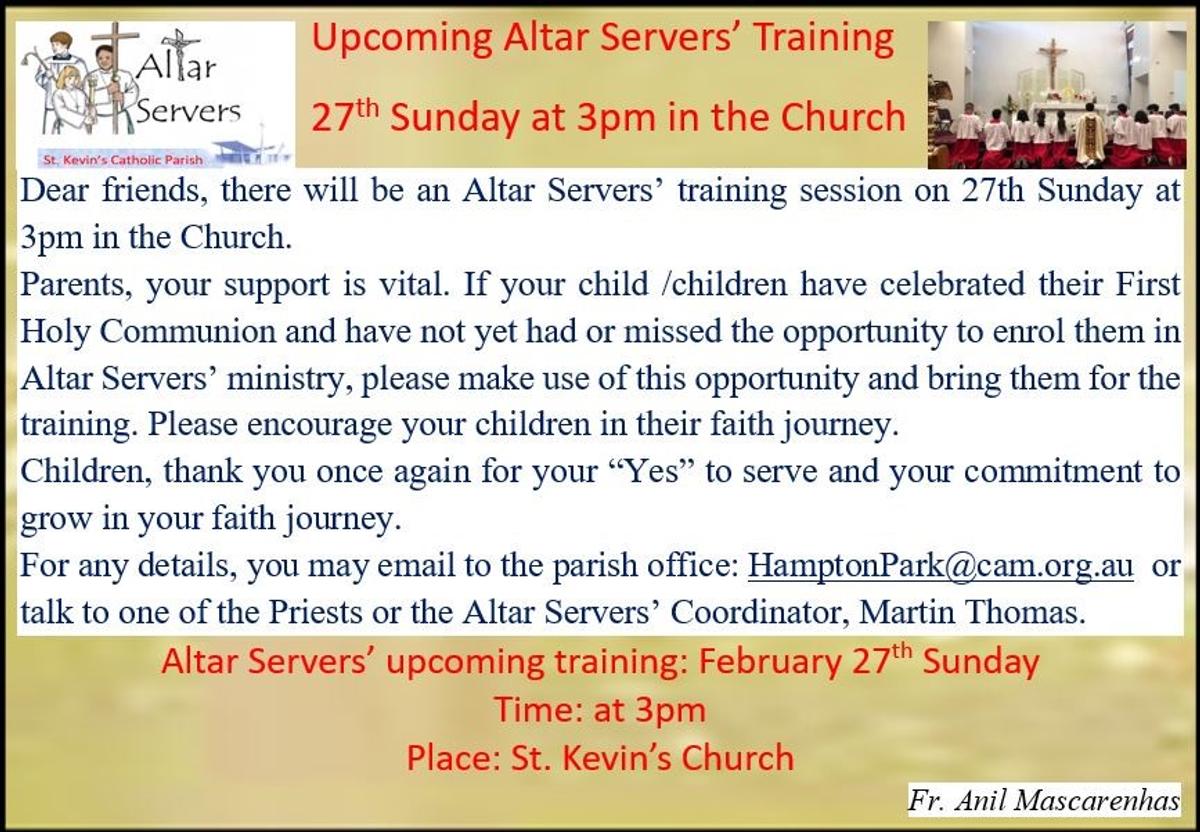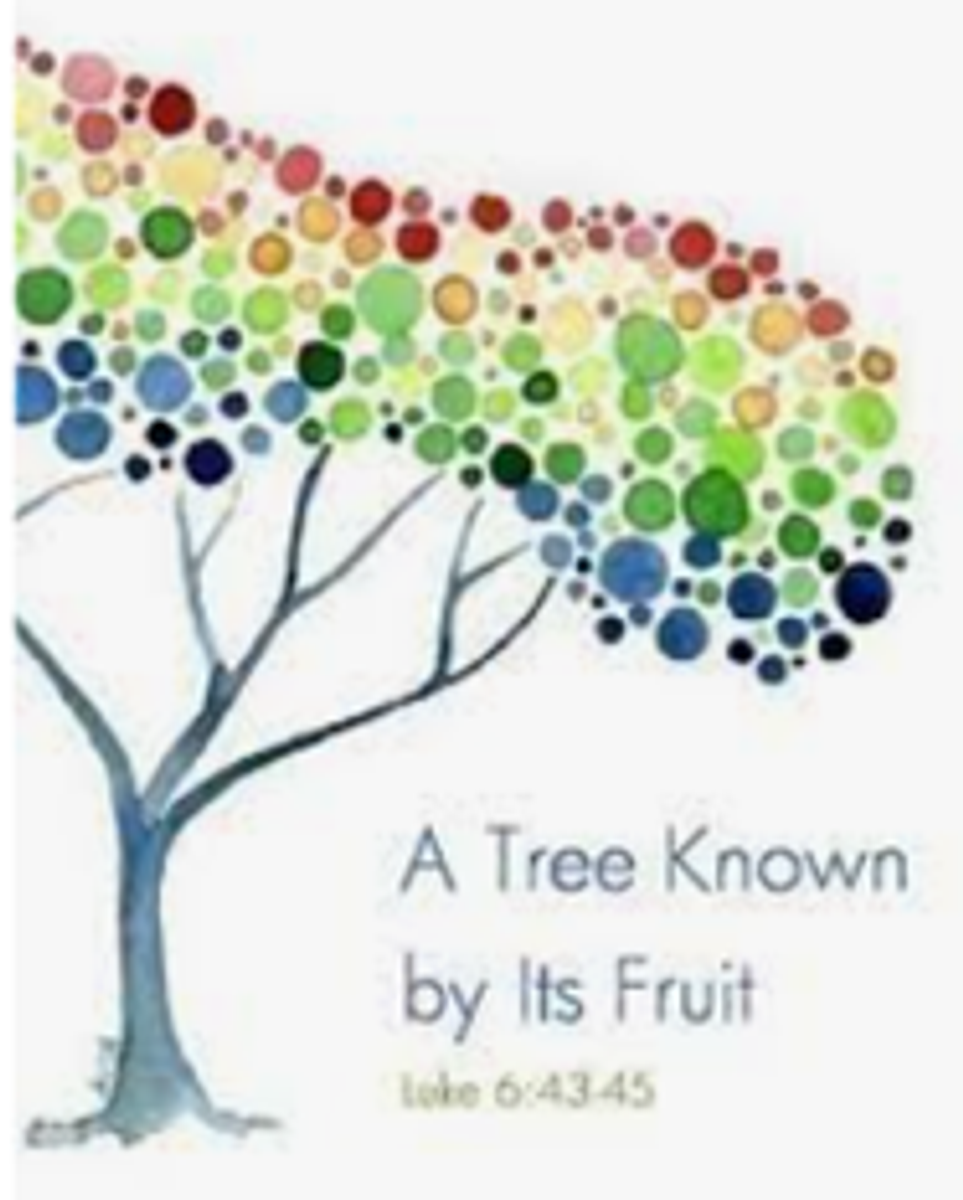Education in Faith

Each tree is known by its yield.
This week Jesus teaches us how to be a good disciple. We listen carefully to this Gospel, which is the final section of Luke’s Sermon on the Plain: And he told them a parable. There are actually four parables, three of which we read this week.
They are all about how to be a good disciple.Our Gospel reading could be viewed as a collection of mini-teachings and practical discipleship reminders. A disciple cannot be a good disciple unless he or she has learned from the teacher. The blind cannot lead the blind. Discipleship asks us to produce good deeds. Nevertheless, to produce them requires the integrity and purity of heart found in the teacher.
When people see your good deeds, they will know that this is because you have a good heart.Everyone who is fully trained is like the teacher who knows how to cure the blind. Before you can be a good disciple and teach others, you must take care of yourself. Do not try to take a speck out of your brother’s eye until you have taken the board out of your own. The final parable, which we do not read today, is about building on the solid foundation of rock and not on sand. This is the only way to face the difficulties a disciple will encounter and survive.
What does Jesus says we should do before we remove the splinter in our brother’s eye? (Remove the wooden beam from our eye.) A wooden beam is much bigger than a splinter. Just like the saying about pointing our finger, Jesus is calling attention to the fact that if we focus our attention on other’s faults, we do not notice our own. He calls us to examine our conscience and act, as he would have us act rather than focusing on what others are doing.
We are good disciples when we model Christian love and make good, moral choices. When we see someone do something that we think is wrong, we do not have to participate. We can be a positive influence by showing a different way to act.
Finally, only when you have purified yourself can you produce the good works that the teacher requires. At its conclusion, Jesus says, “A good person out of the store of goodness in his heart produces good, but an evil person out of a store of evil produces evil; for from the fullness of the heart the mouth speaks” (Luke 6:46).
Sacramental News and Dates
Please note the following dates could change due to Covid -19 restrictions.
| Reconciliation | Parent and Child Workshop Tuesday 22nd March 6 pm at SFS | Tuesday March 29th at 5:30 pm at St. Kevin’s Parish
|
| First Eucharist | Parent and Child Workshop Tuesday 19th July 6 pm at SFS | Sunday July 17th at 11:00 am at St. Kevin’s Parish
|
| Confirmation | Parent and Child Workshop Tuesday 2nd August 6 pm at SFS | Thursday August 11th at 6:00 pm at St. Kevin’s Parish
|
Sacrament Levy
There is a $15 Sacrament Levy to cover the cost for:
- a guest speaker to conduct a Parent and Child Workshop for each Sacrament.
- professionally made stoles.
- a candle for children receiving reconciliation.
- children receiving First Eucharist and Confirmation to travel to St. Kevin’s Church for Reconciliation, Eucharist practice, and reflection day by bus.
This levy needs to be paid in full to the school in an envelope clearly indicating your child’s name, Home Group and name of Sacrament being received before or on the day of your Family Workshop Session.
God Bless
Rozeta Ambrose


